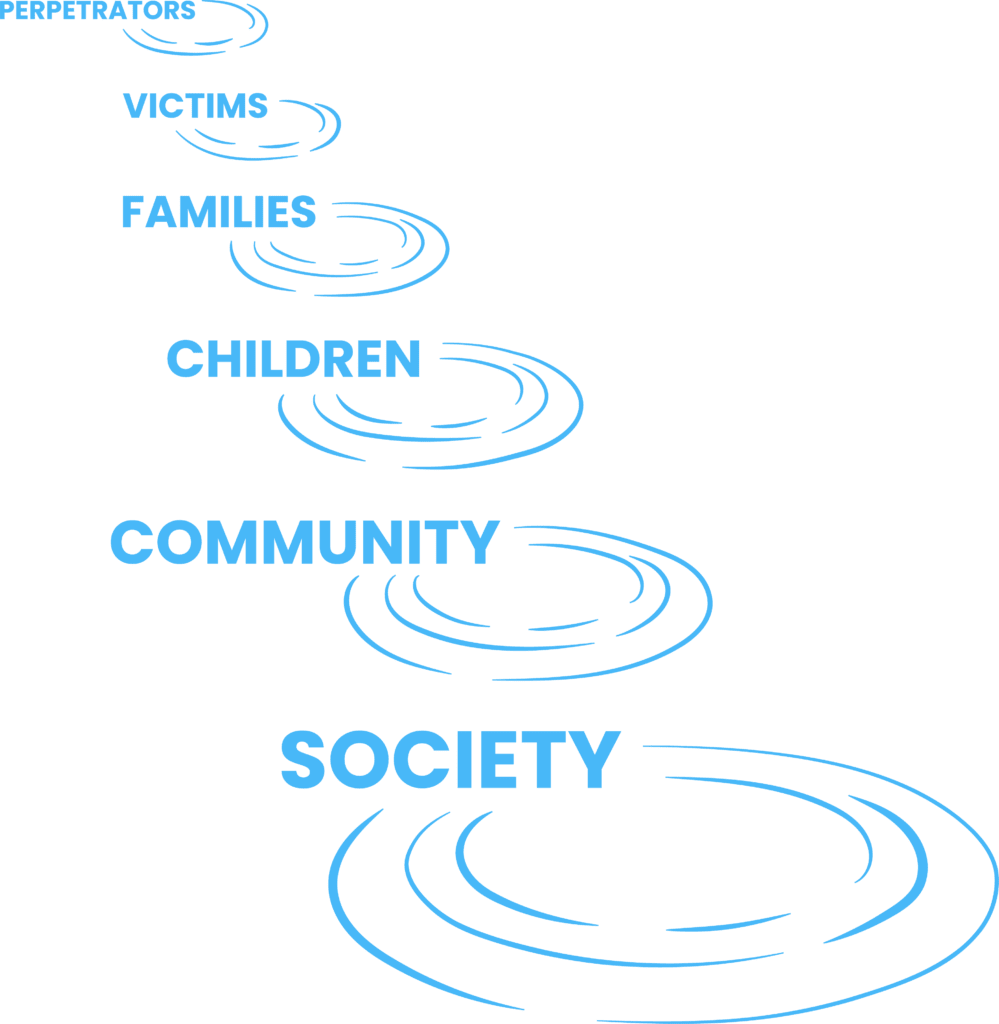Ricochet effect
Reintegrating detainees means reducing recidivism, and therefore criminal acts and their knock-on effect.
A criminal act has an impact on the victim, the perpetrator, their families and children, the community and society as a whole. This is the ricochet effect.
Supporting the reintegration of prisoners is therefore beneficial for a very large number of people, and helps to pacify society. In fact, more than 3 out of 5 prisoners reoffend. In our projects, when we promote professional and family reintegration, this rate is divided by 10.
In supporting the families and children of prisoners, we don’t forget the so-called collateral victims, who often lose their entire household income when a family member is incarcerated. The risk of falling into extreme poverty is then great. Children of prisoners are 5x more likely to end up in prison themselves.
Let’s take action and avoid the ripple effect… for everyone.




